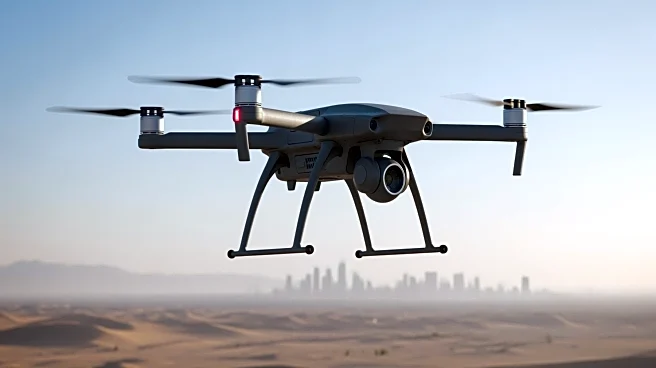What's Happening?
Israel is preparing for the arrival of foreign journalists in Gaza, following a ceasefire and the reopening of the area to international forces. The Israeli government has announced that journalists will
be allowed to enter Gaza under Israel Defense Forces escort, up to the 'yellow line.' This decision comes amid concerns about negative media coverage focusing on civilian suffering and destruction in Gaza. Israeli officials are preparing explanatory materials to counter expected propaganda from Hamas, which may accuse Israel of war crimes. The Foreign Ministry and National Public Diplomacy Directorate are involved in these efforts, emphasizing the need to illustrate Hamas' use of civilian infrastructure for military purposes.
Why It's Important?
The reopening of Gaza to international journalists is likely to bring renewed global attention to the conflict and its aftermath. Israel's public diplomacy efforts aim to manage the narrative and counter accusations of war crimes. The situation highlights the ongoing diplomatic and informational battles despite the ceasefire. The presence of journalists could lead to intensified criticism of Israel's actions during the war, affecting international relations and public opinion. The challenge for Israel is to present evidence of Hamas' military activities within civilian areas, which is crucial for maintaining its stance in the international community.
What's Next?
Israel plans to establish designated sites in Gaza to demonstrate Hamas' operations within civilian areas. These 'demonstration sites' will provide visual evidence to support Israel's narrative. The government is also preparing for debates over Gaza's death toll, aiming to present accurate data on civilian versus terrorist casualties. The reopening of Gaza to journalists is expected to lead to protests abroad, and Israel is bracing for intensified anti-Israel campaigns. Officials emphasize the need for visual evidence to support their message and counter negative media coverage.
Beyond the Headlines
The media scrutiny in Gaza raises ethical questions about the portrayal of conflict and civilian suffering. It challenges the balance between journalistic freedom and national security concerns. The situation underscores the complexity of public diplomacy in conflict zones, where narratives can significantly impact international perceptions and policy decisions. The reopening of Gaza to journalists may also influence future diplomatic negotiations and peace efforts in the region.









